Even if you hate the Clintons, there’s no denying the spectacular amount of charitable work the Clinton Foundation has done and the millions of lives it has improved, even saved. Despite a disinformation campaign, there is no doubt about the sheer scale and variety of beneficial projects in which the Foundation is engaged, from the inner cities of the United States to the slums of India, from helping women and girls overcome discrimination to providing access to HIV/AIDS medications for patients who would otherwise not have them. Here, in one place, is a brief accounting of all the major work, both direct and indirect, that the Foundation performs all across the globe; here is the real deal on the Clinton Foundation’s work. The diversity and scale of the work make the Foundation a truly one-of-a-kind organization, one that many millions around the world are thankful for and would never characterize as something political or fraudulent.
Originally published on LinkedIn Pulse July 3, 2016
By Brian E. Frydenborg (LinkedIn, Facebook, Twitter @bfry1981) July 3rd, 2016, also published by StupidParty Math v Myth here
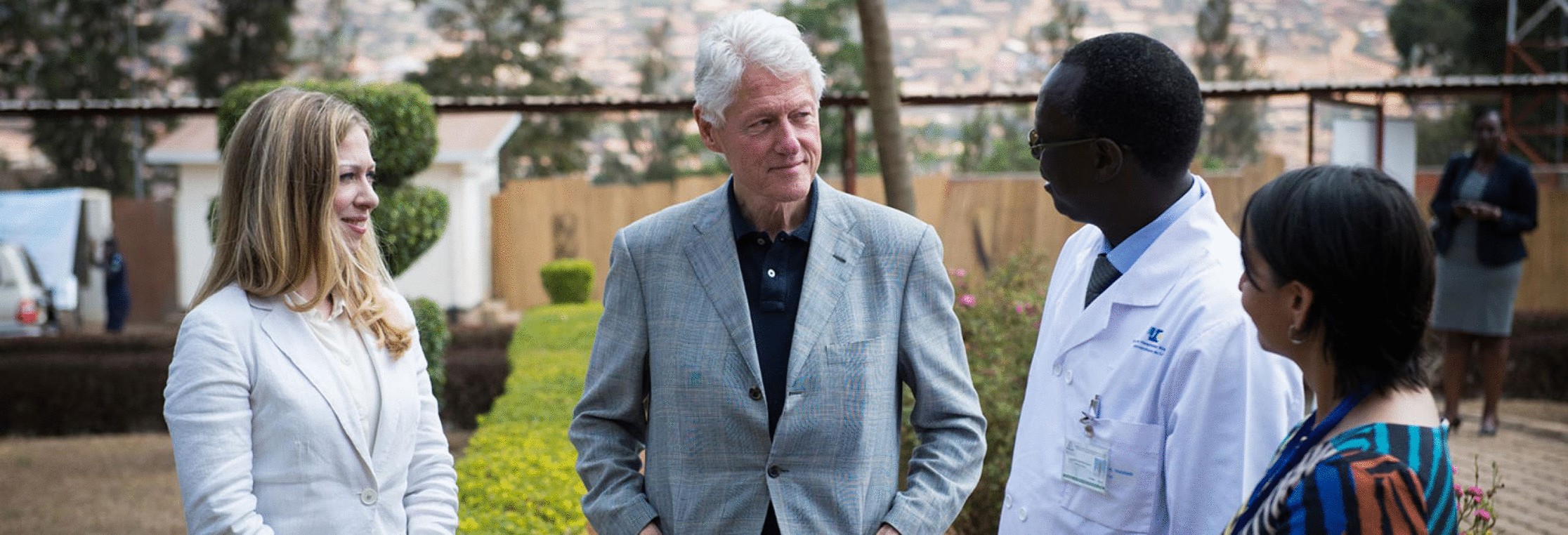
All photos taken from the Clinton Foundation website
AMMAN — If you listen to many conservatives, the Clinton Foundation is little more than a personal, criminal stash for cash for the Clintons (one big “scam,” to quote Trump). But like so many other things that conservatives claim, upon closer inspection, efforts to tarnish or call into question the Clinton Foundation fall flat, quite like their efforts to dismiss the good work of the United Nations, even for all the UN’s faults. In reality, the Clinton Foundation is a massive organization, atypical of most charities but one that does a staggering amount of good all around the world.
Love or hate the Clintons’s politics, it is an objective and indisputable fact that Bill Clinton, Hillary Clinton, and Chelsea Clinton have been involved in programs that have bettered and save the lives of millions of people. Even without Bill’s political career, his work with the Clinton Foundation would be enough to make him one of the great philanthropists of our time, and Hillary Clinton has also been getting increasingly involved, as has Chelsea.
What the Clinton Foundation Is and How It Works
The Clinton Foundation is actually a public charity that mainly does direct charity work, which can be confusing since many foundations primarily funnel money to other charities. While conservative media and political figures (like serial liar Carly Fiorina) have claimed that only a small portion (Fiorina said 6%, hot-air-dispenser Rush Limbaugh said 15%) of the money going into the Foundation goes to charity, this statistic is in reference to the money that the Foundation gives to other charitable groups; the vast majority its money still goes to charity, its own charitable works, with 87.2% of all funds going directly to either their or others’ program activities/beneficiaries. Unsurprisingly, conservatives myopically failed to do even this basic level of research before making their wildly off-base claims, which is par for the course in these hyperpartisan times.
What is now the Clinton Foundation began in 1997 as an organization that began helping then-President Clinton set up his presidential library, but since then it has grown to be a global foundation that encompasses eleven initiatives, has raised over $2 billion for charity and development work, and now raises about a quarter of a billion annually.
Let’s look at these eleven parts, and a twelfth that was recently ended:
Clinton Foundation:
2014 expenses: $249,545,030 (12.3% overhead, including management, administrative, and fundraising expenses; 87.2% directly to program activity/beneficiaries; and 0.5% to make up for shortfalls in donation pledges)
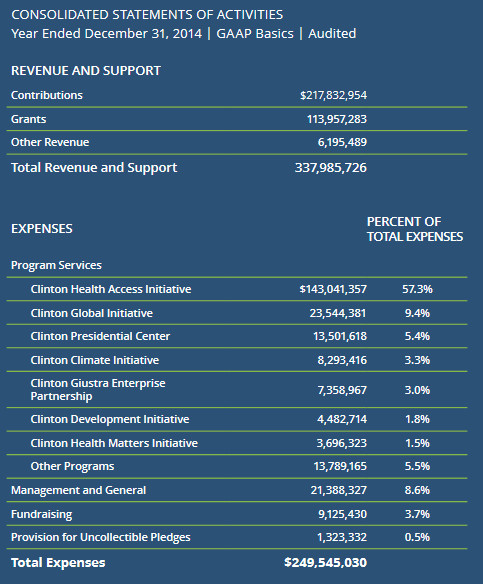
Clinton’s Presidential Center (library) (1997-present)
2014 expenses: $13,501,618 (5.4% of Foundation total)

Presidential libraries serve as something of a combination of a museum and an archive for the particular presidency they showcase. The Clinton Foundation was formed in 1997 to help raise money for Bill Clinton’s presidential library, which it did to the tune of $165 million over some years plus over $11 million in the form of grant of land from Little Rock, Arkansas, on which the library was built (in comparison, Reagan’s library cost $60 million at the time it was built, and George W. Bush’s presidential library cost about $250 million). Clinton’s library, which includes the University of Arkansas’ Clinton School of Public Service and provides year-round educational programs and camps for students of all ages, has benefited the city of Little Rock greatly, as well.
Clinton Economic Opportunity Initiative (2002-2013)
The Clinton Economic Opportunity Initiative began in 2002 by helping small businesses in Harlem and grew to focus on promoting entrepreneurs and small businesses in cities across America. Through partnerships with successful entrepreneurs who acted as mentors and major business institutions like Booz Allen Hamilton and UBS, the Initiative specialized in providing consulting and mentoring to small businesses and small business owners. The 2012 annual report for the Clinton Foundation noted that the Clinton Economic Initiative had provided 75,000 hours of pro bono consulting and mentoring hours, over $15 million in pro bono consulting, that 92% of businesses that received assistance from its Entrepreneur Mentoring Program said that that assistance had helped them deal with the recession, that all these the businesses assisted had an average of a 16% increase in workforce, and over 600 volunteers provided long-term pro bono services for small businesses in nine different U.S. cities. Another example of the type of work the Initiative engaged in, as highlighted in the 2009 annual report, was helping to provide banking services to struggling populations in America that were underserved by the banking industry. The program was shuttered in 2013 because the Foundation found that the efforts were too labor intensive and dependent on many too outside factors to be replicated on the larger scale the Foundation had hoped for it.
Clinton Health Access Initiative* (2002-present, *now affiliated but separate entity)
2014 expenses: $143,041,357 (57.3% of Foundation total)

The Clinton Health Access Initiative began in 2002 as a big push to provide HIV/AIDS patients with low-cost access to life-saving drugs, and since then has expanded to include treatment for malaria and vaccine access, among other programs; nearly 10 million people have received access to lifesaving treatment at low cost through the Initiative since 2002, to name its most significant achievement. It now operates directly in more than 33 countries benefiting over 70 countries overall. Its 2014 annual report noted that it was also heavily involved in assisting Liberia with its recent Ebola epidemic.
Clinton Alliance for a Healthier Generation (2005-present, *now affiliated but separate entity)
2014 expenses: $16,436,262 ($2 million from Clinton Foundation, 0.8% of Foundation’s total expenses; rest is (presumably) raised by Alliance on its own, outside of the efforts of the Foundation)

The Alliance for a Healthier generation was founded by the Clinton Foundation and the American Heart Association in 2005 to fight America’s childhood obesity epidemic by providing alternatives to soft-drink sodas in schools and other facilities used by children, all through making deals with the soda industry. It is the nation’s largest effort to fight childhood obesity, and in large part because of the Alliance’s efforts, the calories of drink products sent to school locations fell 90% from 2004-2010. Through 2015, the program has spread to help affect 18 million students in over 31,000 schools in all 50 states, Washington, DC, and Puerto Rico, as well as over 6,300 locations used by children outside of school grounds. There is also an effort to help students improve health in other ways, engaging over 56,000 doctors and health professionals. The Alliance also engages companies like McDonald’s to improve the level of healthier offerings within their product lines, in McDonald’s case covering 85% of its worldwide sales.
Clinton Global Initiative (2005-present)
2014 expenses: $23,544,381 (9.4% of Foundation total)

The Clinton Global Initiative began as way for President Clinton to bring together world leaders and thinkers as only he can together in one place and to get them to make substantive commitments towards tackling major global problems. Through 2015, it has engaged over “180 heads of state, 20 Nobel Prize laureates, and hundreds of leading CEOs, heads of foundations and NGOs, major philanthropists, and members of the media, which has resulted in $90 billion in commitments representing over 3,100 Commitments to Action, which have improved the lives of over 430 million people in more than 180 countries,” spanning issues as diverse as job creation, training, education, human rights, gender equality, health, medicine, conservation, ecology, endangered species, and international development, among others.
Clinton Climate Initiative (2006-present)
2014 expenses: $8,293,416 (3.3% of Foundation total)
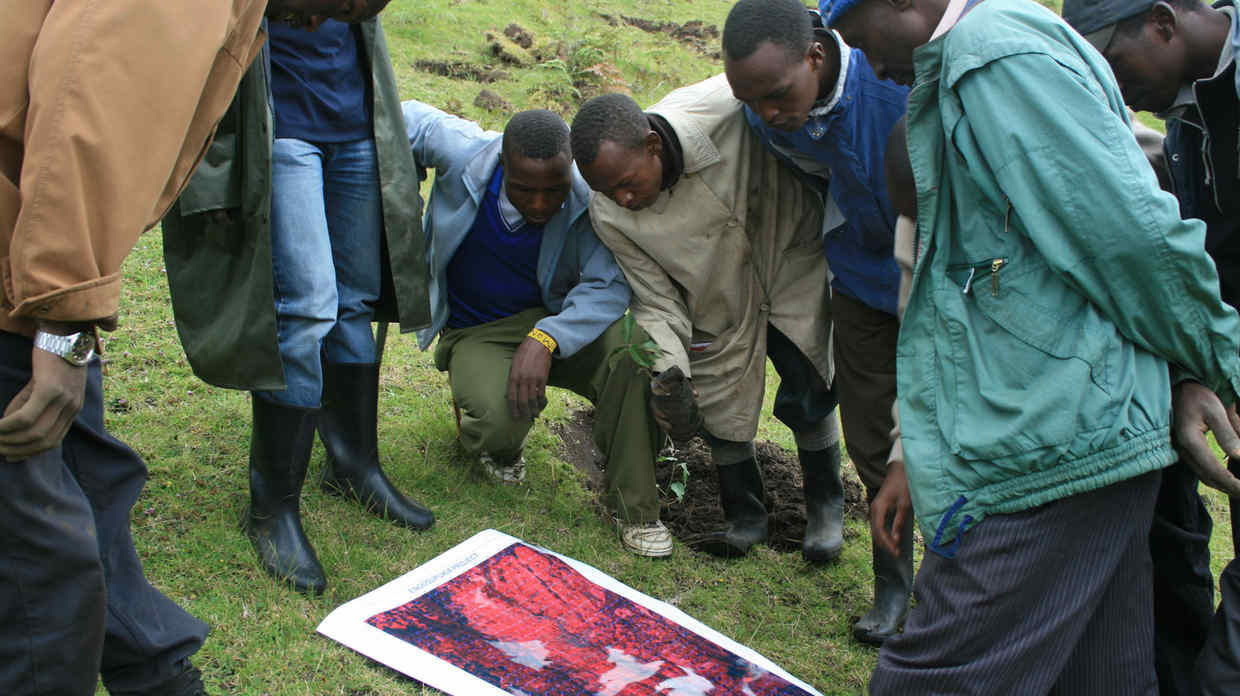
The Clinton Climate Initiative has been working for years to address fundamental drivers behind dangerous man-made climate change using easily replicable and cost-effective methods that the Initiative is spreading throughout the U.S. and the world. The Initiative’s Forestry Program is helping governments together with other partners to better manage their forests and forested lands and to help plan and enact forest restoration, with major programs in Kenya, Ethiopia, and Indonesia. The Islands Diesel Replacement program helps small island countries transform their energy sectors into ones that involve far more clean energy and far more sustainable practices, and also assists with waste and water management, which all, in turn, spur new jobs and markets for the green energy sector. An energy-consumption-reduction program and a Home Energy Affordability Loan (HEAL) program that both began in Arkansas have both spread to six other states—California, Michigan, Missouri, North Carolina, Vermont, and Wisconsin—and allowed both employers and employees to greatly improve energy efficiency and reduce costs, with the HEAL program alone helping over 5,600 people and both programs together reducing U.S. carbon emissions by over 33,500 tons every year.
Clinton Development Initiative (2006-present)
2014 expenses: $4,482,714 (3.3% of Foundation total)

The Clinton Development Initiative has been helping small farmers in Tanzania, Malawi, and Rwanda by leveraging knowledge, resources, and partnerships to help over 105,000 small farmers improve their efficiency and access to markets. In addition, its Trees of Hope program in Malawi has helped over 2,300 farmers plant more than 2.6 million trees to help offset their carbon footprint and create a new opportunity in tree farming, where it is also helping local farmers and their families by establishing local health clinics. In Rwanda, the Initiative recently helped to create two local businesses based on producing soy in one case and coffee in the other that are combined expected to create hundreds of jobs and help 150,000 farmers with their livelihoods. With a New Seeds to Sale Project in Myanmar, the Initiative also helps to reach some 15,000 farmers there over the first 3 years of implementation.
Clinton Giustra Enterprise Partnership (2007-present)
2014 expenses: $7,358,967 (3% of Foundation total)

The Clinton Giustra Enterprise Partnership seeks to implement the best of non-profit and for-profit approaches to help emerging-market-nations around the world deal with major gaps in either supply chains or distribution chains in ways that improve both the social and financial situations of poorer, underserved populations by bringing them into one of three-market driven approaches: supply chain enterprises, distribution enterprises, or training center enterprises in the hopes of providing economic opportunities through which people can find social mobility and lift themselves out of poverty. Distribution enterprises can make a huge difference in rural areas where many small villages and towns and farmers often find it very difficult to obtain basic supplies. The Partnership in one instance found almost 3,000 women in one of the most remote parts of Peru and trained and equipped them with the help of major corporations to be able to sell many basic, in-demand products to their own communities; these women are expected to double their income within a year of beginning the program. Supply chain enterprises help small farmers in developing countries obtain ways to get their products to the right markets and improve their business as a result as well as help developing markets fill their shelves with appropriate and better quality products. A Partnership enterprise in one region of India was able to help small farmers get cashew products to new customers, and another Partnership program set up many small farmers with PepsiCo’s local juice operations; along with efforts to help local farmers become more efficient and produce better crops, the Partnership hopes to see these farmers’ incomes double within 5 years and to spread these models to encompass some 15,000 local farmers in the region in the near future. Another project is helping over 12,000 peanut farmers in Haiti get their crop to markets. Finally, training center enterprises help to provide youth in developing countries the skills needed to get decent jobs in places where there is often a skills mismatch. One such enterprise in Cartagena, Colombia, is training some 20,000 young people to be able to find jobs in the hospitality industry. The Partnership will be expanding to new regions and countries soon, and thus far has helped to train and empower more than 450,000 people in Latin America, the Caribbean, and Asia.
Clinton Health Matters Initiative (2012-present)
2014 expenses: $3,696,323 (1.5% of Foundation total)
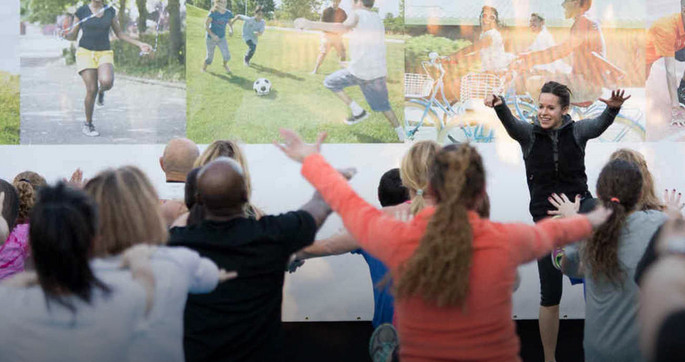
The Clinton Health Matters Initiative works in the United States through a wide variety of public and private, local and national entities to reduce the occurrence of preventable health problems, conditions and diseases, while also working to bridge inequality in health and healthcare access and to improve access for all Americans. Its national-level programs focus on “employee health, military and veteran health, health disparities, access to nutrition, access to sport and physical activity, and prescription drug abuse,” while a variety of local and regional programs (mainly focusing on working through many hundreds of partners to help some 8 million people in specific regions in the U.S.: California’s Coachella Valley, Central Arkansas, Northeast Florida, the Greater Houston Area, and, most recently, Adams County, Mississippi) combine with the national programs to be projected to be able to benefit some 85 million Americans. The initiative has also created over $200 million in partnerships with various organizations to help improve Americans’ health, is helping to innovate new technology to improve healthcare across the country and access to information about health and healthcare, is improving substance abuse and mental health programs on over 60 college campuses, is pioneering fitness programs, is working with 40 different organizations to improve employee wellness, and is bringing together experts from many different organizations to plan new ways to tackle health problems in America.
The following programs fall under the “other” category as listed in the Foundations’ financial statements/annual reports, as is (presumably) the $2 million grant that goes to the Clinton Alliance for a Healthier Generation; the “other” category comprised $13,789,165, or 5.5% of the Foundation’s 2014 expenses; minus the Alliance grant, these below programs would be part of $11,789,165, or 4.7% of the Foundation’s 2014 expenses.
Clinton Foundation in Haiti (2009-present)

The Clinton Foundation in Haiti began in 2009 as a way to specifically help the beleaguered Caribbean nation, but when a major earthquake devastated the nation in 2010, the program focused for some time on disaster relief, recovery, and rebuilding but is now back to its original intent: helping to empower the people of Haiti through education and economic opportunity by engaging a wide range of actors. Since its inception, the program has raised some $36 million for Haiti (including $16.4 million in for immediate relief after the earthquake tragedy), and has also been instrumental in bringing about $120 million in direct investment to Haiti, including in Haiti’s agricultural, artisan, and environmental sectors, helping some 117,000 Haitians and creating some 11,200 jobs.
No Ceilings: The Full Participation Project (2013-present)
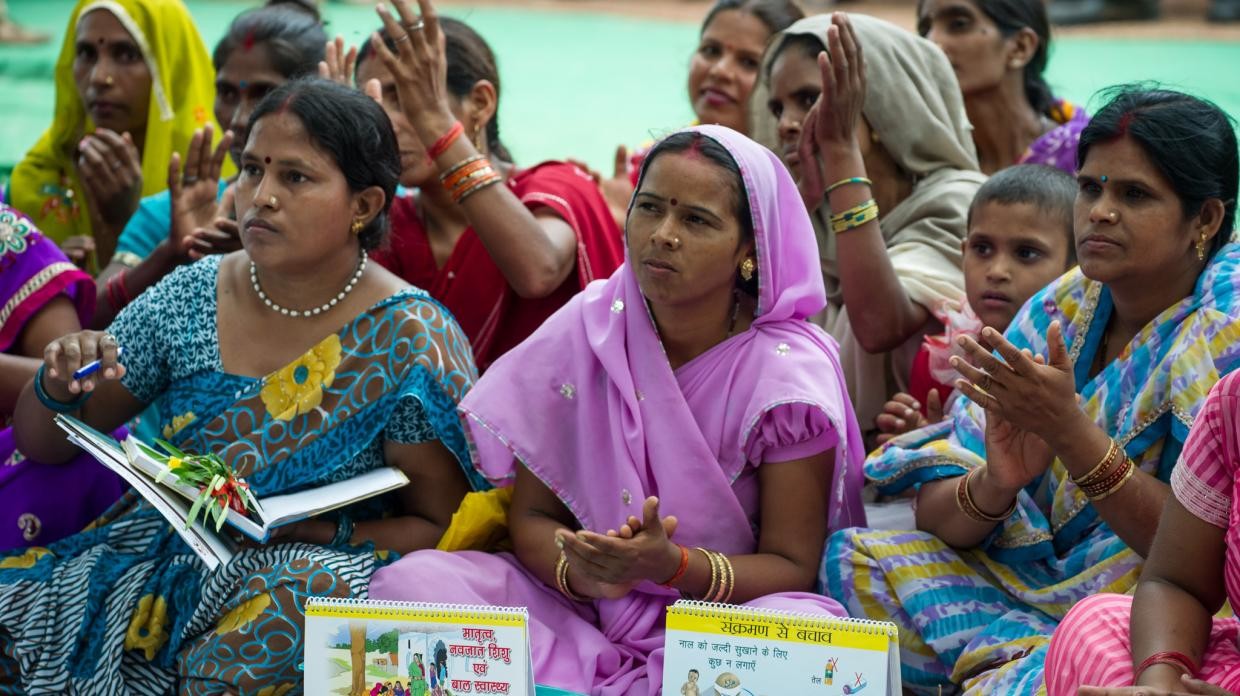
The No Ceilings: Full Participation Project, led by Hillary and Chelsea Clinton, aims to bring women and girls around the world to points of full participation and equal opportunity in their societies using data-driven methods. To this end, the Project partnered with The Bill & Melinda Gates Foundation to produce a detailed global report on the status of women and girls worldwide, identifying specific areas of concern that can be targeted by various organizations around the world. As part of this process, the Project began a global conversation about the status of women involving over 12,000 people, and conducted a survey about the status of women of over 10,000 people in over 150 countries. The Project also teamed with The Brookings Institution to secure pledges from over 30 partners to provide $600 million to help girls get access to and do well in secondary school, which has since been increased to $800 million through 50 partners with plans to reach 15 million girls. Another initiative plans to facilitate access to mobile technology for women in Afghanistan, Myanmar, the Philippines, Indonesia, and the Arab Gulf States in order to help empower disempowered women in those locations.
Too Small to Fail (2013-present)

The Too Small to Fail project, also led by Hillary Clinton, seeks to help different parts of society to come together to provide solid heath and growth environments for children from when they are born to age 5, focusing in particular on interactions involving talking, reading, and singing. Such interactions foster vital early brain and language development among our youngest children, ensuring that they enter school not in a mental state behind that of their follow classmates and in a better position to succeed in life. This helps to fight the “word gap” in which lower-income kids by age 4 hear an average of 30 million fewer words than their better-situated counterparts, causing their brains and language skills to develop more slowly. With partners like Sesame Street, the American Academy of Pediatrics, Univision, Text4baby, and Scholastic, Too Small to Fail was a major force in efforts to donate some 500,000 books, reach 700,000 parents regularly with parenting information and tips through text messaging, use television programming to get important information and tips out to parents, get over 20,000 families to take pledges, and distribute 62,000 literacy toolkits to pediatric professionals.
*****
In addition:
In America, the Clinton Foundation has also helped to organize thousands of volunteers for “Days of Action” that have resulted in over 18,000 hours of volunteer service since 2012, at first in response to Hurricane Sandy and later to include other projects. There is also the Job One initiative, designed to help young Americans find meaningful employment in the wake of the Great Recession; so far, the initiative has secured promises from 13 companies to focus on mentoring and hiring young people, has generated commitments worth $37 million, and expects to be able to help some 150,000 young Americans in the near future.
*****
All in all, The Clinton Foundation is a unique thing in the world, one of the world’s largest charities on its own, but then transcending even that status when the extensive action it has led indirectly through its special partnerships and relationships is taken into account, amplifying its already staggering scale of impact on people all over the world. It’s time the media and even the Clintons’ critics clearly acknowledged this basic truth. And for Trump to criticize the Clinton Foundation, when nothing he has done has even come close to a fraction of this level of charity, is shameful.
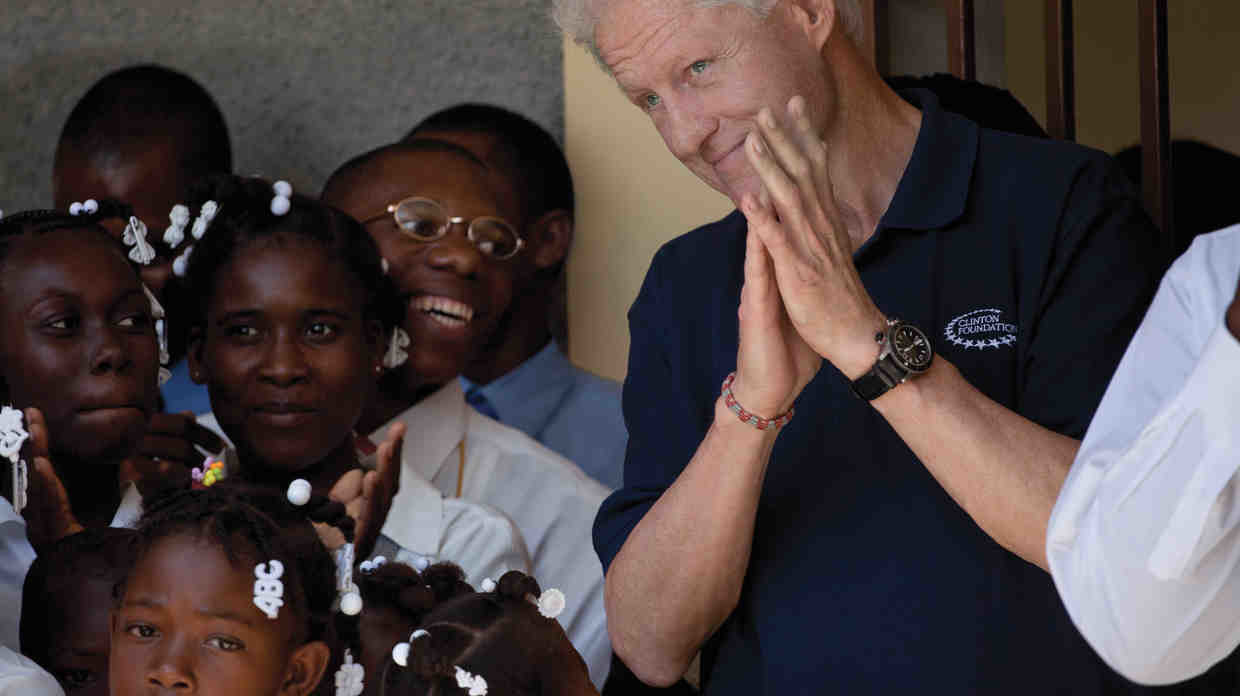
© 2016 Brian E. Frydenborg all rights reserved, permission required for republication, attributed quotations welcome
If you appreciate Brian’s unique content, you can support him and his work by donating here.
Here are many more articles by Brian E. Frydenborg. If you think your site or another would be a good place for this content please do not hesitate to reach out to him! Feel free to share and repost on LinkedIn, Facebook, and Twitter (you can follow him there at @bfry1981)